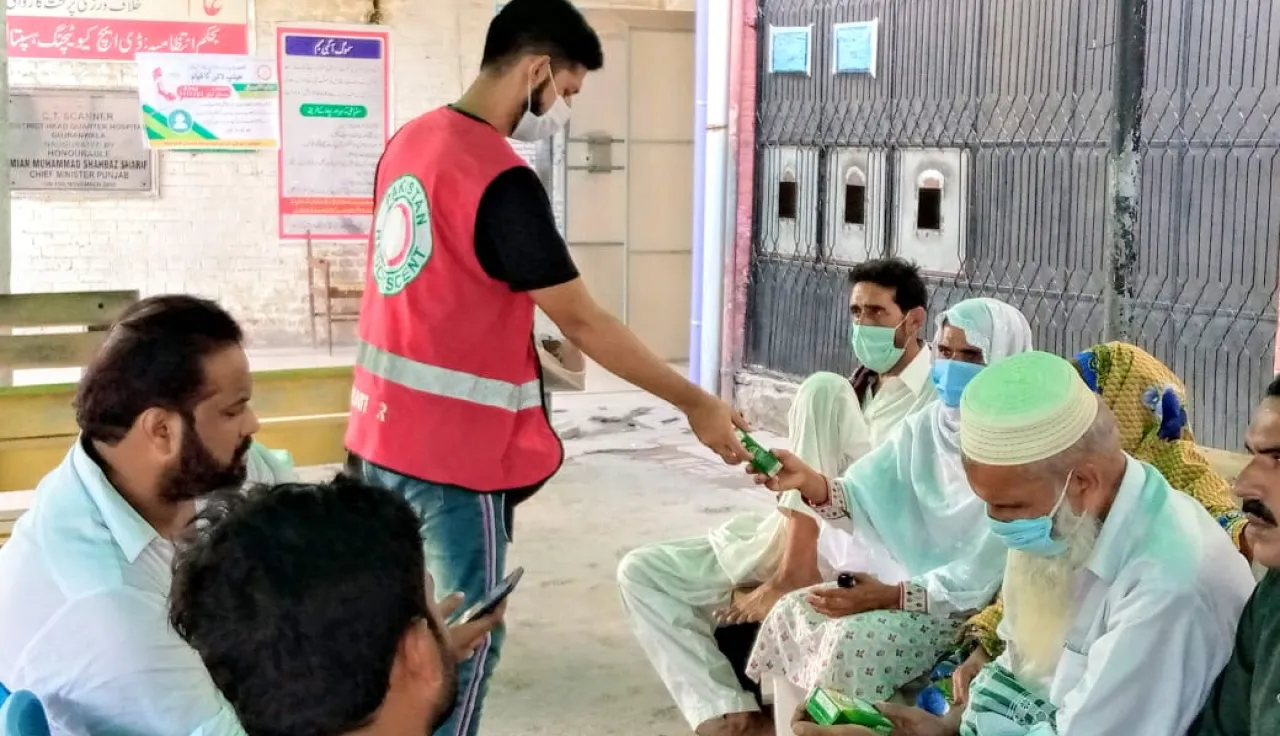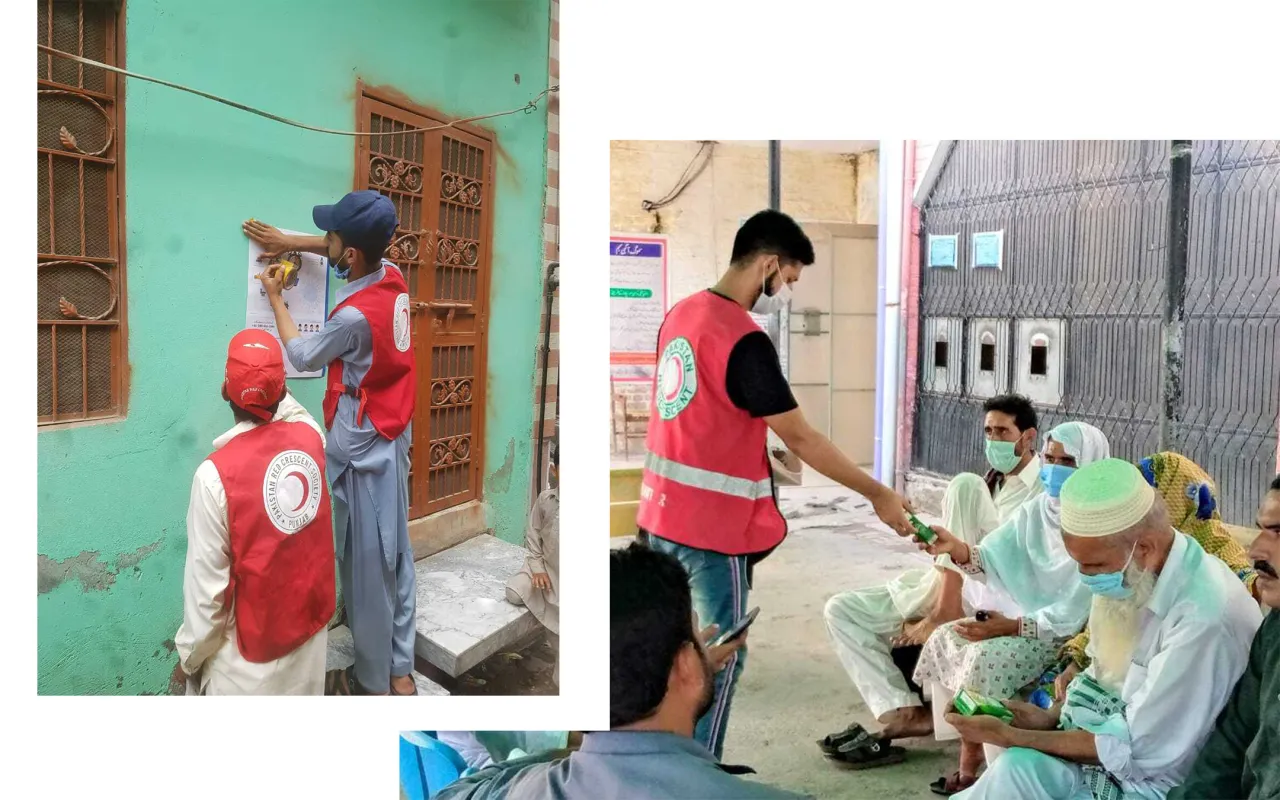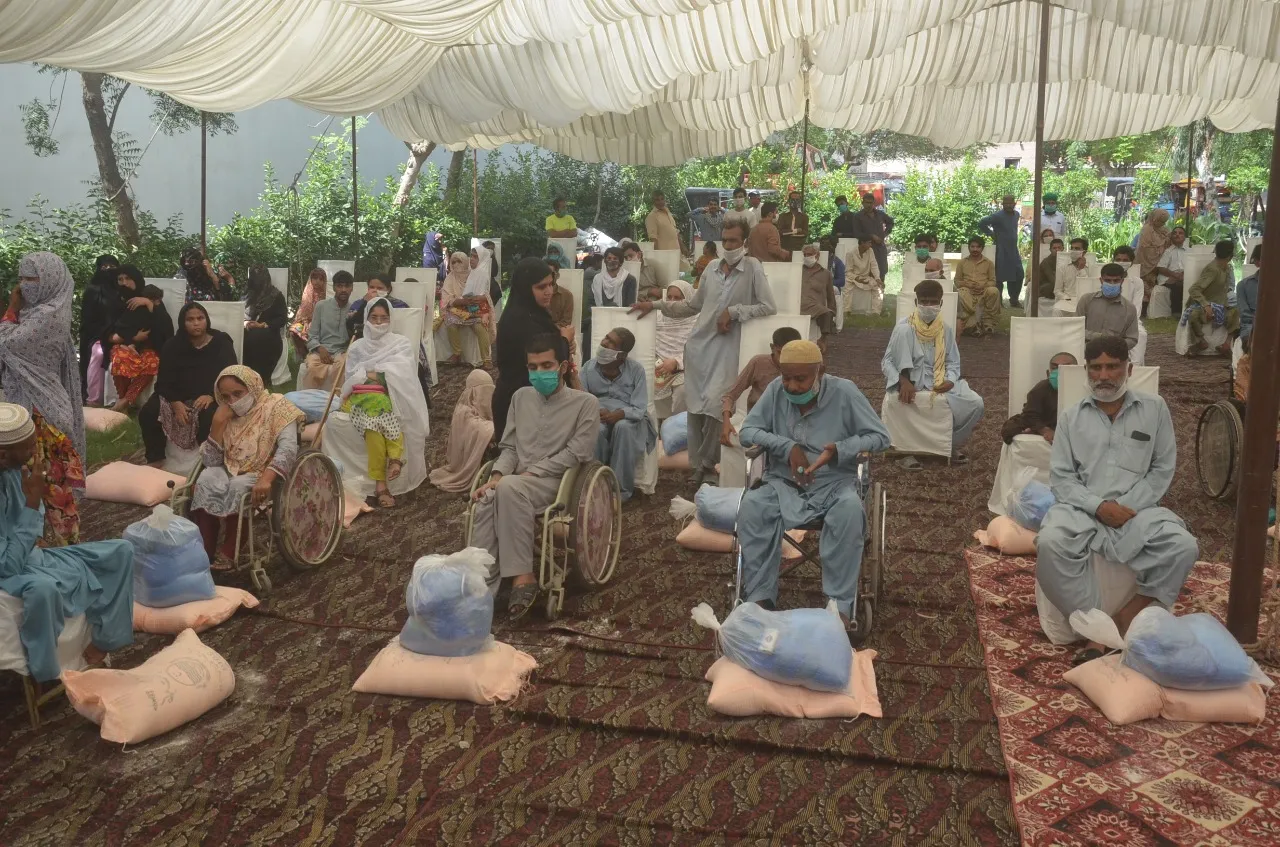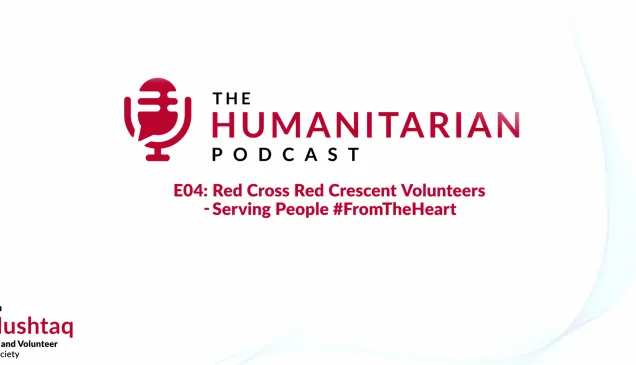Pakistan: ICRC operational response to COVID-19

COVID-19 poses unprecedented challenges to states and communities across the globe. Like in many other countries, the International Committee of the Red Cross (ICRC) has joined the massive efforts being carried out by the government, local communities and humanitarian organizations to control the spread of the pandemic in Pakistan through a context-centered approach with a special focus on vulnerable communities. Our response is structured along the following key operational areas:
Supporting health-care facilities
Health care infrastructure forms the backbone of the response to COVID-19. To help the health sector fight this pandemic we have provided:
-
Personal Protective Equipment (PPE), disinfection items, awareness posters, triage tents and waste management materials to four public hospitals in Khyber Pakhtunkhwa (formerly North-West Frontier Province) and the merged areas.
-
Technical guidance to hospital management in KP and merged areas on infection prevention and improving triage capacity.
-
PPE and hygiene material for staff and patients at 24 physical rehabilitation centres supported by the ICRC.
-
Financial support to 3,400 families of people with disabilities.
-
Online medical consultation and free-of-cost diabetes medicines to 1,800 patients across Islamabad, Rawalpindi and Pakistan-administered Kashmir.
Mughal, who was among those who received the medicines, said, "I had run out of ideas for managing my health. Then The Diabetes Centre (TDC) called and set up an online consultation that included a video medical examination. A couple of days later, officials from TDC and the basic health unit came home to give me medicines for about two months along with information on identifying symptoms of COVID-19 and how to stay safe."

Management of the dead
The number of deaths caused by COVID-19 could overwhelm local capacity in handling dead bodies properly. We helped organizations and authorities involved in managing the mortal remains of deceased patients by providing:
- Mortal remains kit, including rubber boots, plastic glasses, overalls, latex gloves, apron and surgical masks, along with 100 white body bags to Provincial Disaster Management Authority (PDMA) in Balochistan and body bags to Lady Reading Hospital in Peshawar.
- Mortal remains kits to Edhi Foundation, Al-Khidmat Foundation, Rescue 1122, Pakistan-administered Kashmir's State Disaster Management Authority and Pakistan Red Crescent (PRC).
- Guide cards for deathcare workers on dignified and safe management of dead bodies.
Liaquat, who works with Rescue 1122, said, "I shift COVID-19 patients to the hospital and manage the burial of deceased patients according to religious and safety protocols. Even though it is a stressful job, we try our best to treat the patients' mortal remains and their relatives with care and respect. The PPE provided to our team is very helpful in ensuring we stay safe and continue to perform our duties diligently."
Promoting respect for health-care workers
The safety and protection of health-care workers and infrastructure is of paramount importance during this pandemic. As part of the Health Care in Danger Initiative (HCiD), we have been:
- Raising awareness through digital and field campaigns regarding safe behaviour and respect for health-care workers.
- Continuously engaging with health-care authorities and parliamentarians to design and promote laws and policies that protect health care against violence.
- Working on a mass awareness campaign, based on consultations with health-care staff working in COVID-19 units and general public, to counter the misinformation causing lack of trust and violent incidents within health-care facilities.

Infection control in places of detention
The ICRC and PRC have been supporting authorities in Sindh and KP to strengthen preventive measures against the spread of coronavirus in prisons:
- Provided ad hoc assistance in the form of essential items including protective masks, informational posters, no-contact thermometers, hand sanitizers, bleach and chlorine to all places of detention in KP and Sindh.
- Wrote to authorities about the best practices to mitigate the risks of COVID-19 outspread in places of detention. In this regard, the ICRC works with the approval and support of the National Institute of Health (NIH) in Islamabad.
Support to Pakistan Red Crescent Society (PRCS)
As part of the coordinated movement response to the pandemic, the ICRC and International Federation of the Red Cross and Red Crescent Societies (IFRC) are supporting the PRCS with technical guidance on emergency response and programme implementation as well as the following measures:
- Providing hygiene items and financial support to purchase PPE for PRCS staff and volunteers.
- Helping volunteers to increase awareness in the community about preventing the spread of coronavirus.
- Helping to reconnect families that have lost contact with their relatives in Pakistan or abroad because of the pandemic.
- Giving pre-paid mobile cards to around 400 families with limited financial means in Gilgit-Baltistan during distribution of food and other supplies by the PRCS to help them remain in touch with relatives, including those admitted to hospitals or in quarantine.
Community engagement and raising awareness
Access to right information is crucial in controlling a pandemic. With this in mind, the ICRC's communication and awareness response is based on a response to COVID-19 in Pakistan is based on engaging the community according to the evidence and feedback from those who are affected.
- We have prepared a variety of awareness materials in local languages for physical rehabilitation centres, hospitals, prisons and the general public with messages on maintaining hygiene, social distancing and handwashing.
- Prepared a guide for journalists with the dos and don'ts of reporting on coronavirus.
- Raised awareness and encouraged religious leaders to help in countering stigma against COVID-19 patients.
- Launched a digital campaign to counter the stigma against affected people, including front-line workers.
- Continue to work with PRC volunteers to understand COVID-19 risk perception in rural communities and raise awareness through a holistic campaign involving on-ground outreach activities and mass media tools.
Tahmass Durrani, who is the contact person for PRCS youth volunteer programme in Pakistan-administered Kashmir, said, "I saw how COVID-19 was affecting people and businesses and joined the Muhafiz Force because I wanted to play whatever little part I could in protecting my community from coronavirus. If I am able to save even one life, it will be worth all the efforts."



